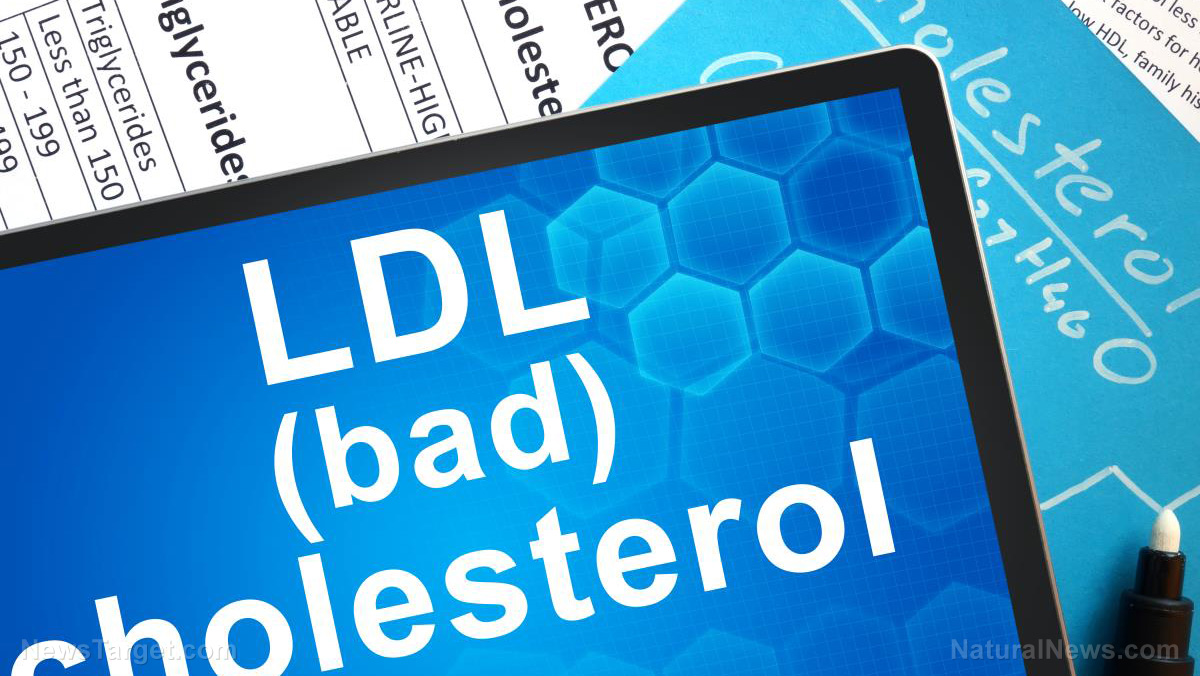How low is too low? Low cholesterol levels may increase the risk of bleeding stroke in women, warn researchers
08/30/2019 / By Isabelle Z.

It’s a familiar scenario in doctors’ offices across the country: A patient is told their cholesterol numbers are above the limit and sent on their way with a prescription for statins.
It happens to people every day, and it might have even happened to you. But before you blindly start taking these medications, there are a few points you may want to consider – not the least of which is a recent study showing that low cholesterol levels might raise a woman’s risk of bleeding stroke.
The study was carried out by researchers from Brigham and Women’s Hospital, who say that women who have low levels of cholesterol are twice as likely to have a stroke that results in bleeding in the brain than people with average levels of cholesterol. On top of that, they found that the women who had the lowest levels of triglycerides had a higher risk of hemorrhagic stroke than those with higher triglycerides.
Hemorrhagic stroke takes place when a weakened vessel within the brain ruptures and then bleeds into the brain. The American Stroke Association reports that they account for roughly 13 percent of all strokes. They’re less common overall than ischemic strokes but are harder to treat and more fatal.
The researchers found that while just 0.4 percent of women with cholesterol between the levels of 100 and 130 mg/dL are affected by this type of stroke, it strikes 0.8 percent of women whose cholesterol levels are 70 mg/dL or below.
To understand their findings, it’s important to make the distinction between the two types of cholesterol. HDL, or “good” cholesterol, carries cholesterol from throughout your body back to your liver so it can be removed; the study was not concerned with this type of cholesterol. Instead, it looked at LDL, or bad cholesterol, which can build up in your arteries and has been associated with heart problems.

|
Discover how to prevent and reverse heart disease (and other cardio related events) with this free ebook: Written by popular Natural News writer Vicki Batt, this book includes everything you need to know about preventing heart disease, reversing hypertension, and nurturing your cardiac health without medication. Learn More. |
The researchers reached their conclusion after studying nearly 28,000 women 45 and older who were part of the Women’s Health Study over the course of 20 years.
They warned that women are already at a higher risk of suffering a stroke than men, partly because they tend to live longer, so it’s important to be aware of anything that may raise the risk further.
Cholesterol isn’t the enemy
We’ve been led to believe that all cholesterol is bad, thanks largely to the efforts of pharmaceutical companies that sell cholesterol-controlling medications known as statins.
Since their introduction to the market in the 1980s, they’ve been huge moneymakers; Lipitor is the all-time most profitable drug in history, raking in more than $12 billion in revenues at its peak in 2006.
Contrary to popular belief, cholesterol is actually something your body needs. That’s why low levels can pose a risk. Your liver makes much of the cholesterol your body requires, but many people also consume a lot of dietary cholesterol on top of that, which can sometimes tip the scales into unhealthy levels.
However, what defines an unhealthy level is also up for debate, with Big Pharma exerting its influence to get the “acceptable” numbers reduced so more people can be convinced they need their profitable medications – never mind the fact that statins have been shown not to improve heart health in many patients and carry a host of dangerous side effects, including liver and kidney damage, a higher risk of type 2 diabetes, neurological disease, and even heart failure.
When it comes to cholesterol, it’s best not to overcorrect high levels artificially with approaches like statins – especially if your levels aren’t terribly high in the first place. Eating a healthy, balanced diet can often keep cholesterol within a reasonable range.
Sources for this article include:
Tagged Under: Big Pharma, HDL cholesterol, health myths, high cholesterol, LDL cholesterol, low cholesterol, statins, stroke, women's health



















